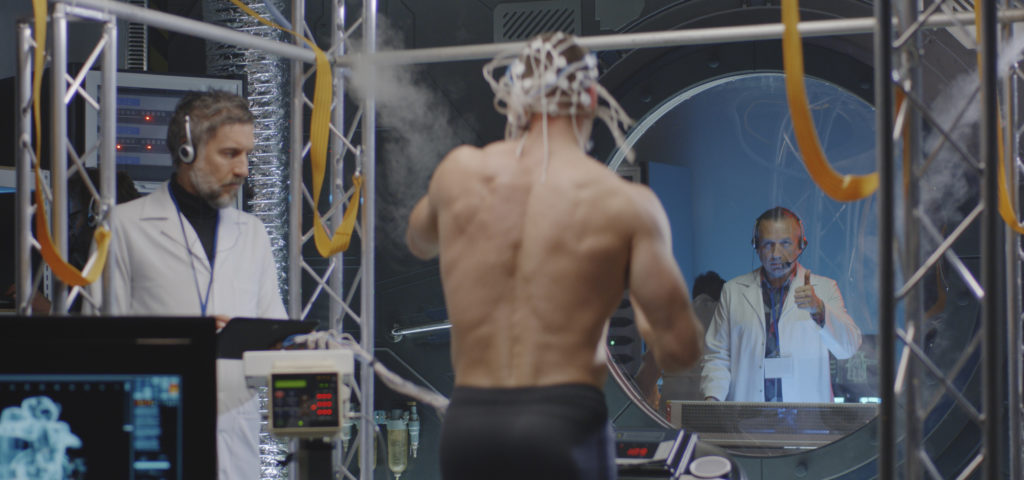Quick Hits
Daily brief research updates from the cognitive sciences

Those of you who have followed my writing will know that I have reported regularly on the amazing benefits of exercise and walking on the brain, body, and cognition.
However, though we know that walking can stimulate various cognitive functions, we also know that doing multiple complex or demanding tasks together reduces performance. So, walking helps stimulate creativity and improves cognitive performance – normally after walking, while walking, performance on cognitive tasks decreases. Which is often why when you really need to think something through you automatically stop or pause.
This is all in line with what we know of cognitive and brain functioning. However, some researchers from the University of Rochester Medical Centre have just published a paper with some surprising results.
What did they find?
26 healthy 18-30-year-olds did a series of tasks. First they did a response task to images of pictures while sitting. This was considered their “baseline” performance level. They then conducted the same task while walking on a treadmill. Almost all previous research showed that performance decreases. This was the case in 12 participants, however, in 14 participants performance increased!
All participants had EEG recordings of their brain activity – and they found that in these 14 prefrontal activity (associated with cognitive performance) in the brain increased during walking tasks leading to higher performance. However, before you get too excited there was no way to predict this from any other data or even observing them.
This suggests that in some people in this study more than 50% of people improve performance on cognitive tasks while walking. Which if we learn to predict this could lead to more effective strategies for cognitive performance for these people.
It could also be that these people also intuitively do tasks that boost their performance. But beware – the research on multitasking is still clear: the more tasks you do concurrently, the lower the performance, the more mistakes you make, and the slower you are. It also compares a highly automated task, walking with a cognitive task, not two cognitive tasks. So, no free card on multi-tasking here.
Single tasking, is still the best advice I can give to boost performance●

Andy Habermacher
Andy is author of leading brains Review, Neuroleadership, and multiple other books. He has been intensively involved in writing and research into neuroleadership and is considered one of Europe’s leading experts. He is also a well-known public speaker speaking on the brain and human behaviour.
Andy is also a masters athlete (middle distance running) and competes regularly at international competitions (and holds a few national records in his age category).
Reference
Eleni Patelaki, John J Foxe, Kevin A Mazurek, Edward G Freedman.
Young adults who improve performance during dual-task walking show more flexible reallocation of cognitive resources: a mobile brain-body imaging (MoBI) study.
Cerebral Cortex, 2022
DOI: 10.1093/cercor/bhac227
More Quick Hits
Behaviour at eight helps predict midlife health behaviours
A long-term study in Finland has tracked children from the age of eight until the age of 50 and a new analysis of the data, just published, has looked at some of the correlations between socioemotional behaviour in childhood and later life achievement and health...
Psychedelics and consciousness
Psychedelics change our conscious experience of the world – that is part of their attraction. Now a new study out of John Hopkins Medicine has analysed data on attributions of consciousness to other animals and innate objects by those using psychedelics and how this...
Lower smartphone usage increases wellbeing
So much has been said about smartphone usage in modern times. This ranges from some who say that they are destroying our brain to others who see they benefit our cognition by outsourcing cognitive heavy tasks like remembering lists of phone numbers – thereby freeing...
Modesty preferred for cooperative teams
In an age where it appears that many people are vying for self-esteem especially through social media, this research is interesting. Particularly in business contexts where cooperation is king. Research has previously shown that appearing to be wealthy increases...
Poverty shrinks babies’ brains
Quick HitsDaily brief research updates from the cognitive sciences couple of studies have just been released which look at the brains of newborns and young babies. The results are worrying for any society. Brain scans of newborn babies from...
Babies born with five from seven functional brain networks
In the 1950s the blank slate theory was the most prominent theory ascribed to babies. They are born blank slates and then their experiences allow them to develop their networks thoughts, associations, etc., and just about everything else. Though this theory is long...






